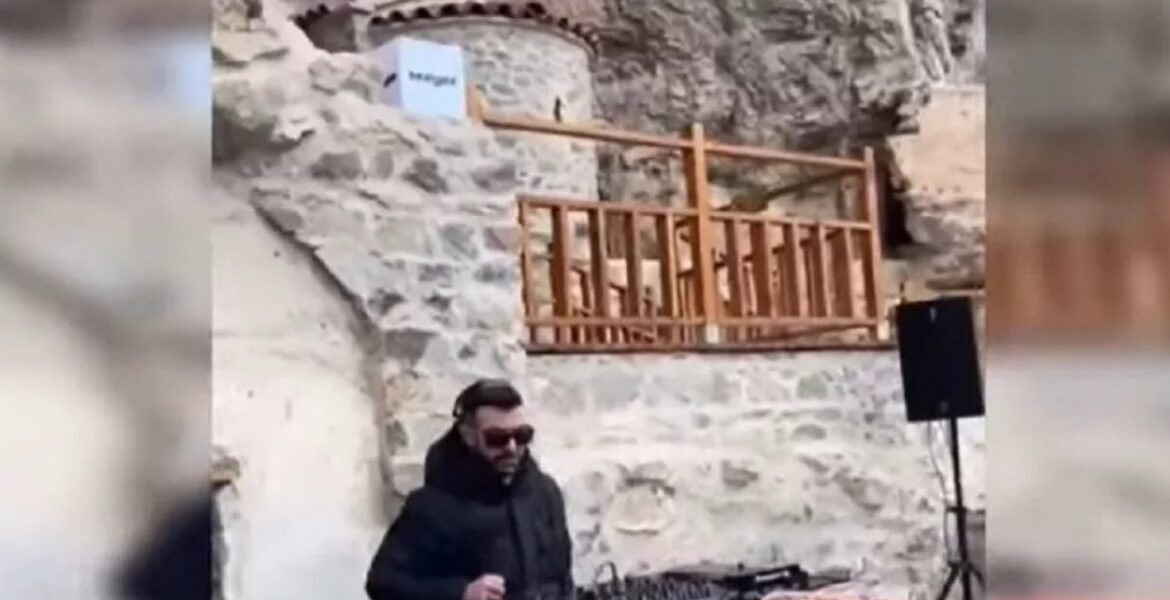The historical monument of Pontian Hellenism, Panagia Soumela, is in the foreground again after a video clip showed the churchyard transformed into an open-air entertainment area, which has naturally provoked a storm of reactions.
In the video, people dance to rhythms reminiscent of a disco, while a church bell rings!
Ντροπή: Η Παναγία #Σουμελά έγινε κλαμπ - Εξοργιστικές εικόνες από την #Τουρκία pic.twitter.com/msRLG9RCa7
— Timeline (@Timelinegr_) February 5, 2022
According to Turkish media, the organisers claimed that they had the permission of local authorities for the use of the space with the ultimate purpose of promoting tourism in the area.
Historian Vasilis Tsenkelidis expressed his indignation at the "shameful use of the Acropolis of the Pontians."
"The problem is that the historic monastery is used by the Turkish authorities as a museum," the historian said, adding: "Even for the patriarchal Divine Liturgy of the 15th of August, when it is celebrated, we pay a ticket."
"The bottom line is that if it only functioned as a monastery, there would be no such phenomena of misuse by the Turkish authorities," Tsenkelidis said.
However, as he emphasises, the feelings of the Turks for Panagia Soumela remain mixed.
"Some see the monastery - a symbol of Pontic Hellenism, simply as a building. Some extremists do not respect it," he explained.
At the same time there is a portion of crypto-Christians or population with a Greek conscience who seem to want its reopening as a religious space.
READ MORE: Professor Fotiadis: There’s up to 2 million crypto-Greeks in Turkey and many visit Panagia Soumela in Pontos.
The view that the Ecumenical Patriarchate failed to protect the historical relic of the Greeks of Pontus was expressed on his part by Father Ioannis Diotis.
"The Patriarchate of Constantinople is unable to protect Orthodox monuments. This was understood from the case of Hagia Sophia, which the Turks turned into a mosque. Now another church is being desecrated," he stressed.
"If the Ecumenical Patriarchate had not weakened its position after the schism it created in Orthodoxy, it might have been able to ally with the other churches and protect the Orthodox churches in Turkey," said the priest.
"The Russian Church could help, but after the Ukrainian autocephaly granted by Patriarch Bartholomew, this is very difficult," concluded Father Diotis.
READ MORE: Secret tunnel leads to ancient chapel discovery at Panagia Soumela.


